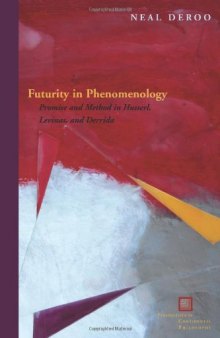 جزییات کتاب
جزییات کتاب
From Husserl's account of protention to the recent turn to eschatology in "theological" phenomenology, the future has always been a key aspect of phenomenological theories of time. This book offers the first sustained reflection on the significance of futurity for the phenomenological method itself. In tracing the development of this theme, the author shows that only a proper understanding of the two-fold nature of the future (as constitution and as openness) can clarify the way in which phenomenology brings the subject and the world together. Futurity therefore points us to the centrality of the promise for phenomenology, recasting phenomenology as a promissory discipline.Clearly written and carefully argued, this book provides fresh insight into the phenomenological provenance of the "theological" turn and the phenomenological conclusions of Husserl, Levinas, and Derrida. Closely examining the themes of protention, eschatology, and the messianic, it will be essential reading for anyone interested in phenomenology, philosophy of religion, deconstruction, or philosophical theology



 دانلود کتاب
دانلود کتاب

 جزییات کتاب
جزییات کتاب

 این کتاب رو مطالعه کردید؟ نظر شما چیست؟
این کتاب رو مطالعه کردید؟ نظر شما چیست؟
